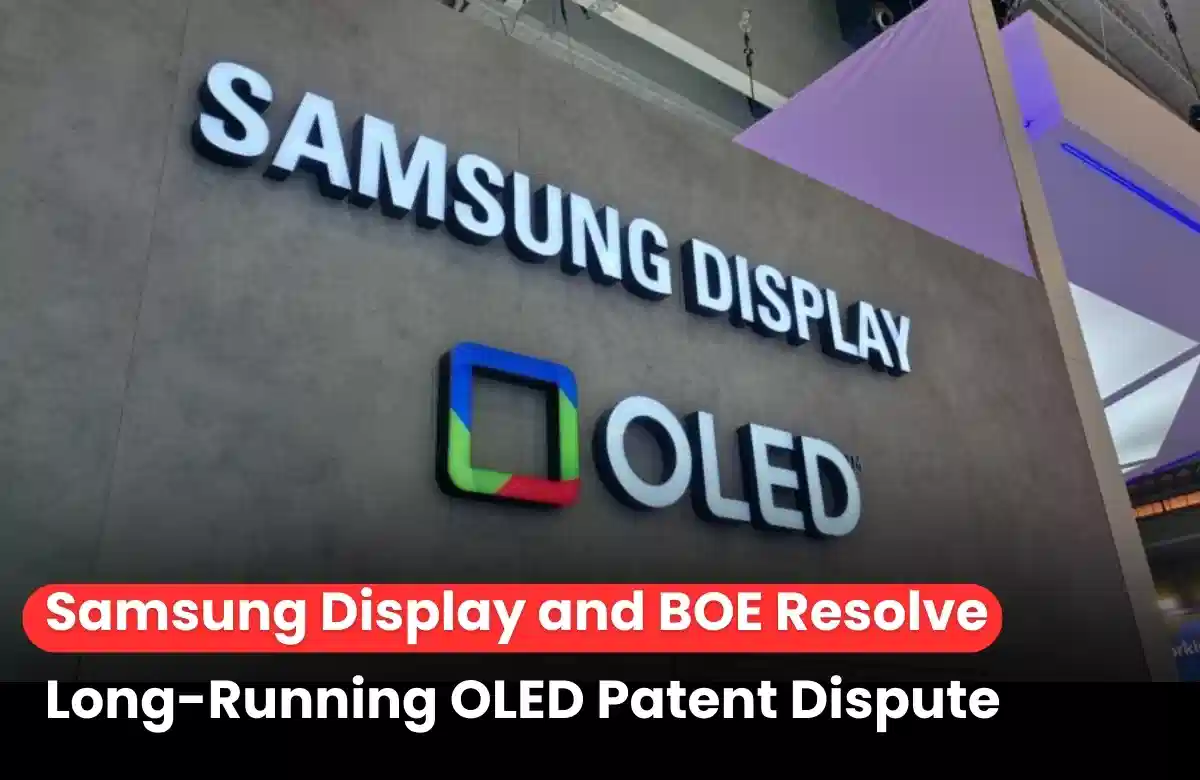
Settlements in court cases are nothing new, but one recent settlement has grabbed headlines worldwide Samsung vs BOE patent case settlement. South Korea’s Samsung and China’s BOE—two giants in the OLED display industry—have finally reached an agreement in one of their long-running patent disputes in a U.S. court. Both companies are major players in the OLED market, so this dispute was closely watched across the tech world. Samsung had accused BOE of infringing its OLED patents, and the case grew bigger over the years. Want to know what exactly happened, why this settlement matters, and what it means for the tech industry? Keep reading to dive into the full story of Samsung’s patent case.
What Started the Long-Running Patent Battle Between Samsung and BOE?
To understand this Samsung vs BOE patent case—and the U.S. court’s decision—it’s important to look at how the whole dispute actually began. The Samsung vs BOE clash goes back a few years and is rooted in OLED technology, one of the most competitive and valuable areas in the display industry. The trouble started in 2022, when Samsung noticed something suspicious: BOE seemed to be using technology very similar to Samsung’s own OLED designs, and allegedly without permission. Samsung Display then filed a complaint with the U.S. International Trade Commission (ITC), accusing BOE of infringing several of its patented OLED technologies used in smartphones and other devices.
Things got even more serious in 2023, when Samsung expanded the case by accusing BOE of misusing trade secrets and even hiring former Samsung employees to gain access to confidential OLED manufacturing methods. What began as a simple patent dispute quickly escalated into a major intellectual Property Rights (IPR) fight involving both patent infringement and trade-secret theft. Over time, the ITC found merit in Samsung’s claims and even considered imposing a long-term ban on BOE’s OLED exports to the U.S.—a move that could have disrupted global supply chains. This intense buildup is what ultimately pushed both companies to settle the case, leading to the major headline you’re seeing today.
Samsung had a pretty strong list of demands in this case, such as:
- First, they wanted BOE to stop using Samsung’s patented OLED technology altogether, since they believed BOE was copying it without permission.
- Next, Samsung asked the U.S. ITC to block BOE’s OLED panels from being imported into the United States through a Limited Exclusion Order.
- They also pushed for a ban on any products sold in the U.S. that contained BOE’s allegedly infringing OLED panels.
- On top of that, Samsung demanded compensation and royalty payments for the unauthorised use of its patents.
- They even sought damages for trade-secret theft, claiming BOE misused confidential Samsung manufacturing techniques.
- And finally, Samsung wanted an injunction to make sure BOE couldn’t use any of Samsung’s patented or proprietary processes in the future.
Read Also: Supreme Court Sends ‘Officer’s Choice vs Original Choice’ Whisky Trademark Battle to Mediation
What Happened in the U.S. Court During the Samsung vs BOE Patent Case?
Now let’s take a look at what actually happened in the U.S. court and why the decision ultimately leaned in Samsung’s favour. Once Samsung filed its complaints, things escalated fast. After going through all the evidence, the U.S. International Trade Commission (ITC) found that BOE had indeed infringed several of Samsung’s OLED patents. As the case moved forward, the ITC also took Samsung’s trade-secret allegations seriously—especially the claims that BOE gained access to Samsung’s confidential OLED manufacturing processes through former employees.
By March 2025, the ITC delivered a major ruling confirming that BOE had violated three of Samsung’s key OLED patents. And then came the biggest turning point: the ITC signalled that it was considering a long-term ban, possibly up to 15 years, on BOE’s OLED panel exports to the U.S. Such a ban would have hit BOE’s global business hard and caused major disruptions across smartphone supply chains. Realising how serious things were getting, both companies eventually decided to settle the case before the ITC went ahead with the ban.
Conclusion
The Samsung vs BOE patent case settlement marks a major moment in the global tech and IP world. What started as a patent and trade-secret battle grew into a high-stakes case that could have shaken the entire display industry. With the ITC leaning strongly in Samsung’s favour and even considering a long-term ban on BOE’s OLED exports, the pressure pushed both sides to finally settle. While the exact terms remain confidential, the agreement brings much-needed stability back to the OLED market and clears a major legal cloud hanging over the industry.
Read Also: Transsion Faces Multi-Country Lawsuits as Ericsson Alleges Patent Infringement
